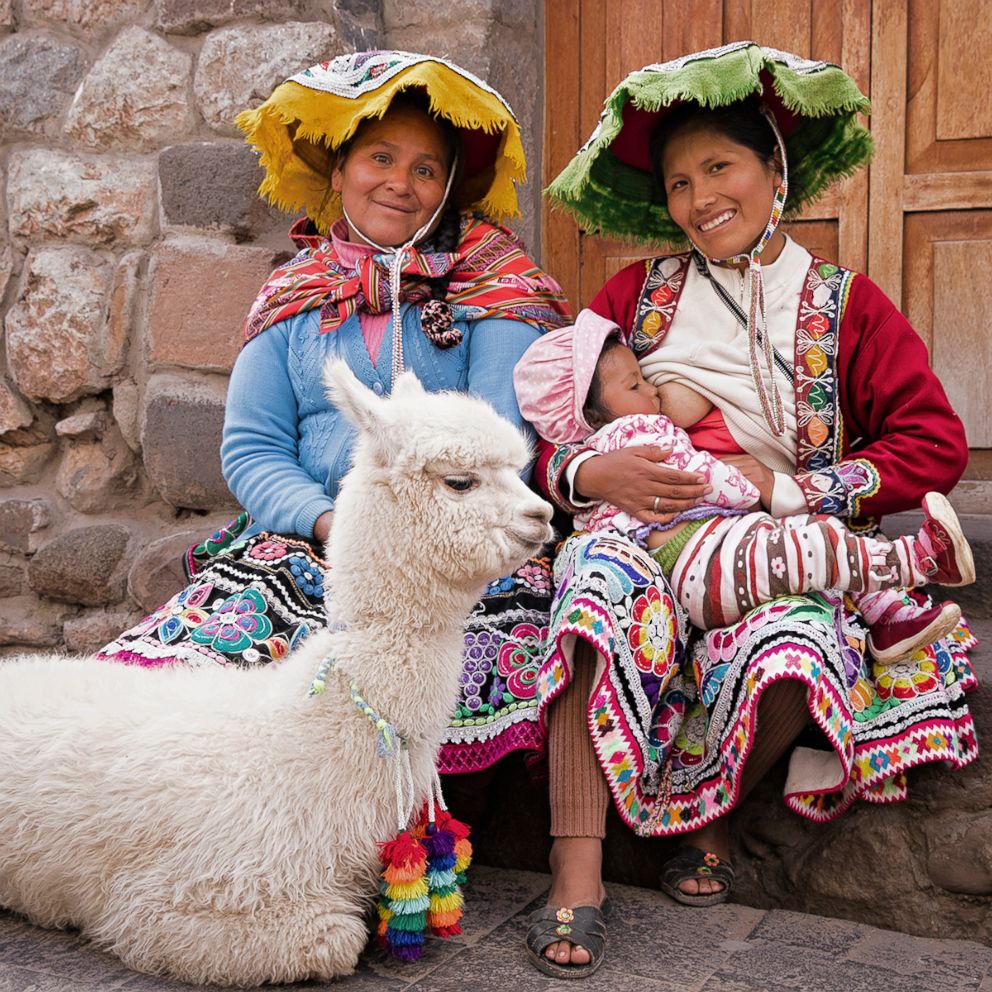How one mom is changing a town's law on breastfeeding in public
Colleen Morgan was surprised to find a breastfeeding rule in a town's pool rules
Breastfeeding in public is legal in all 50 states, but a mother in New York discovered her town required breastfeeding be limited to "designated areas."
That code went unnoticed and unchanged in Hempstead, New York, for more than 35 years until Colleen Morgan, 33, brought it to the attention of town leaders.

Morgan, a mother of two, noticed in June that among the rules for the local pool was one that read, "Breastfeeding and diaper changing shall be permitted in designated areas."
"It upset me for two reasons," Morgan told "GMA." "One, because it's illegal and, two, because they felt the need to put breastfeeding in with diaper changing as though it's something dirty that needs to be done out of the public eye."
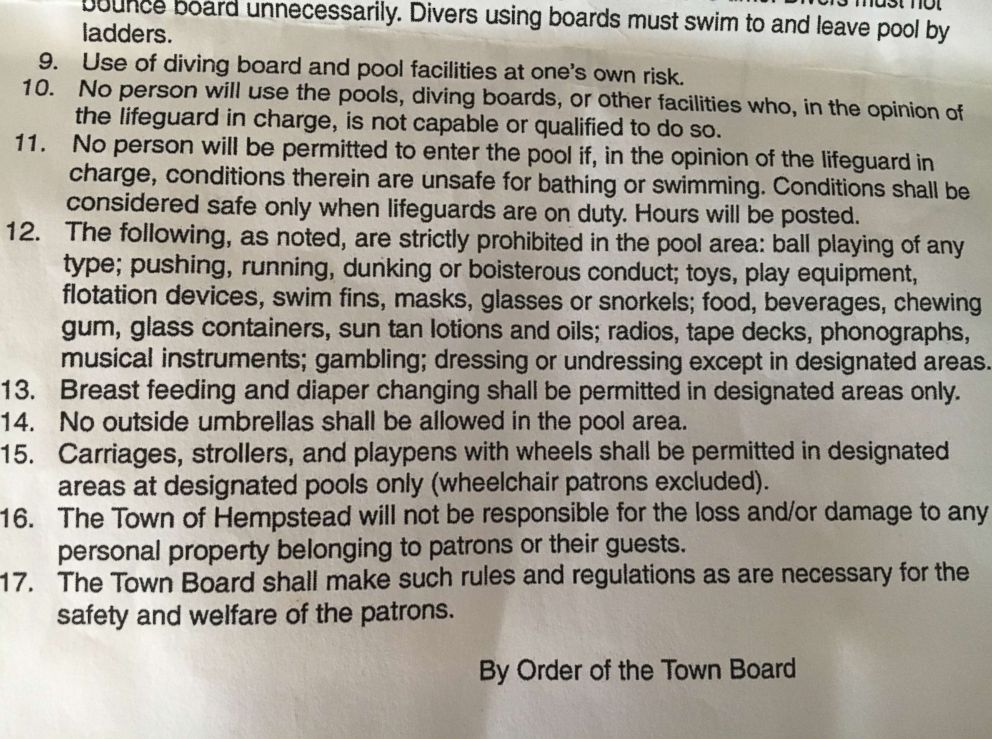
Morgan sent an email to Town Supervisor Laura Gillen to alert her to the discrepancy between the town code and New York state law, which has protected the right to breastfeed in public since 1994.
She also posted about it on social media and was surprised to see that while the majority of the replies were supportive, some were still opposed to women's breastfeeding in public.
"I was kind of shocked," Morgan said. "I think a lot of people don't even realize that unless you're actually looking for it, you don't even see it. When a baby is nursing, the child's head covers the mother's breast. This is a normal thing that mothers will do in public."
Gillen has introduced a new town code that would permit women to breastfeed in public anywhere throughout Hempstead, a suburb of New York City. The town board is scheduled to vote on the proposal next month.
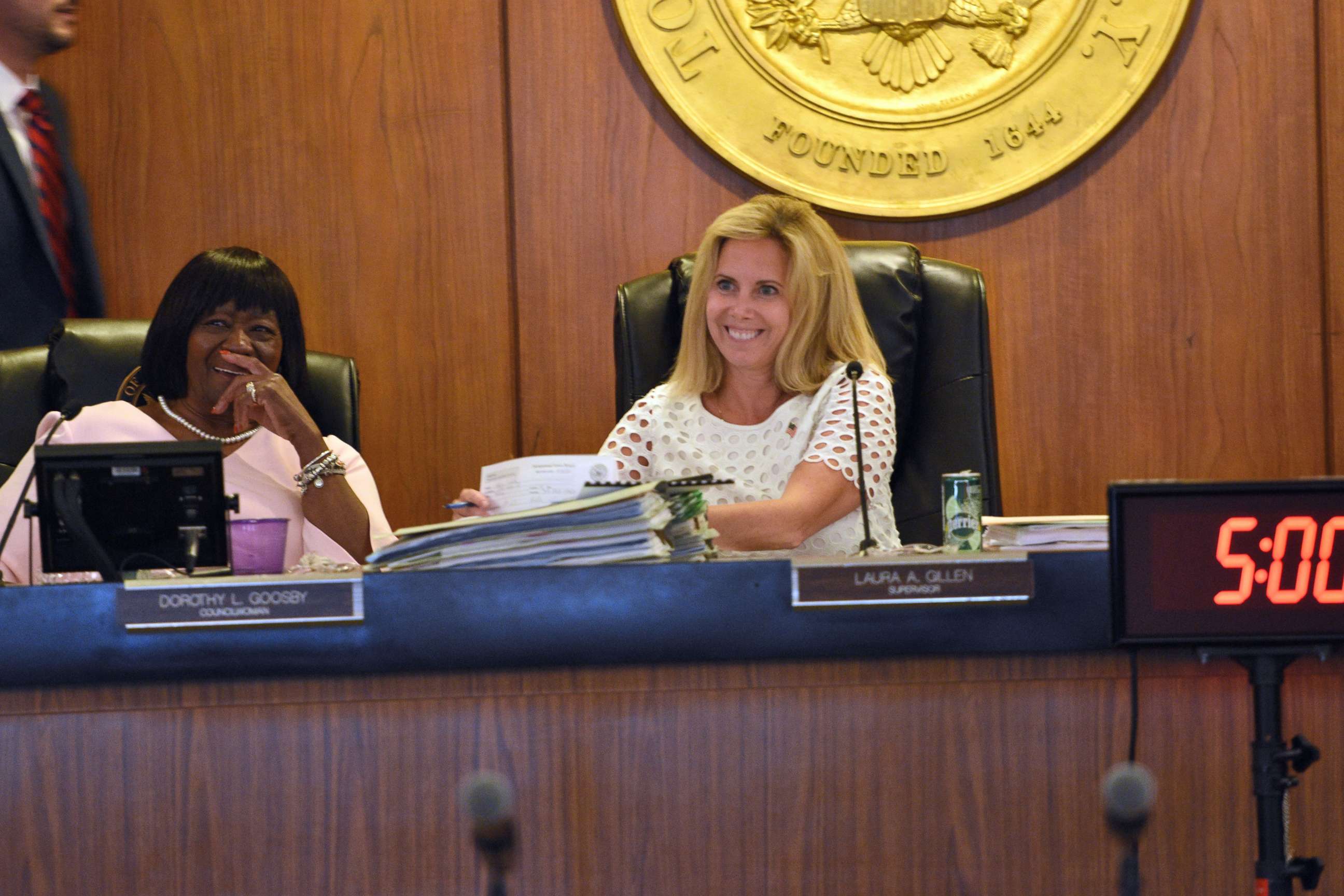
"I am the first mother who has ever served as Hempstead town supervisor, so this is an issue that is very important to me," said Gillen, a mother of four and the first Democrat to serve as town supervisor in more than 100 years. "We're very grateful that Colleen came forward and made us aware of this archaic rule that had not been updated since 1982."
In addition to Gillen, two other members of the town board are mothers. Gillen said she's "optimistic" the law will pass and credits being a mother to helping her bring a new perspective to her role.
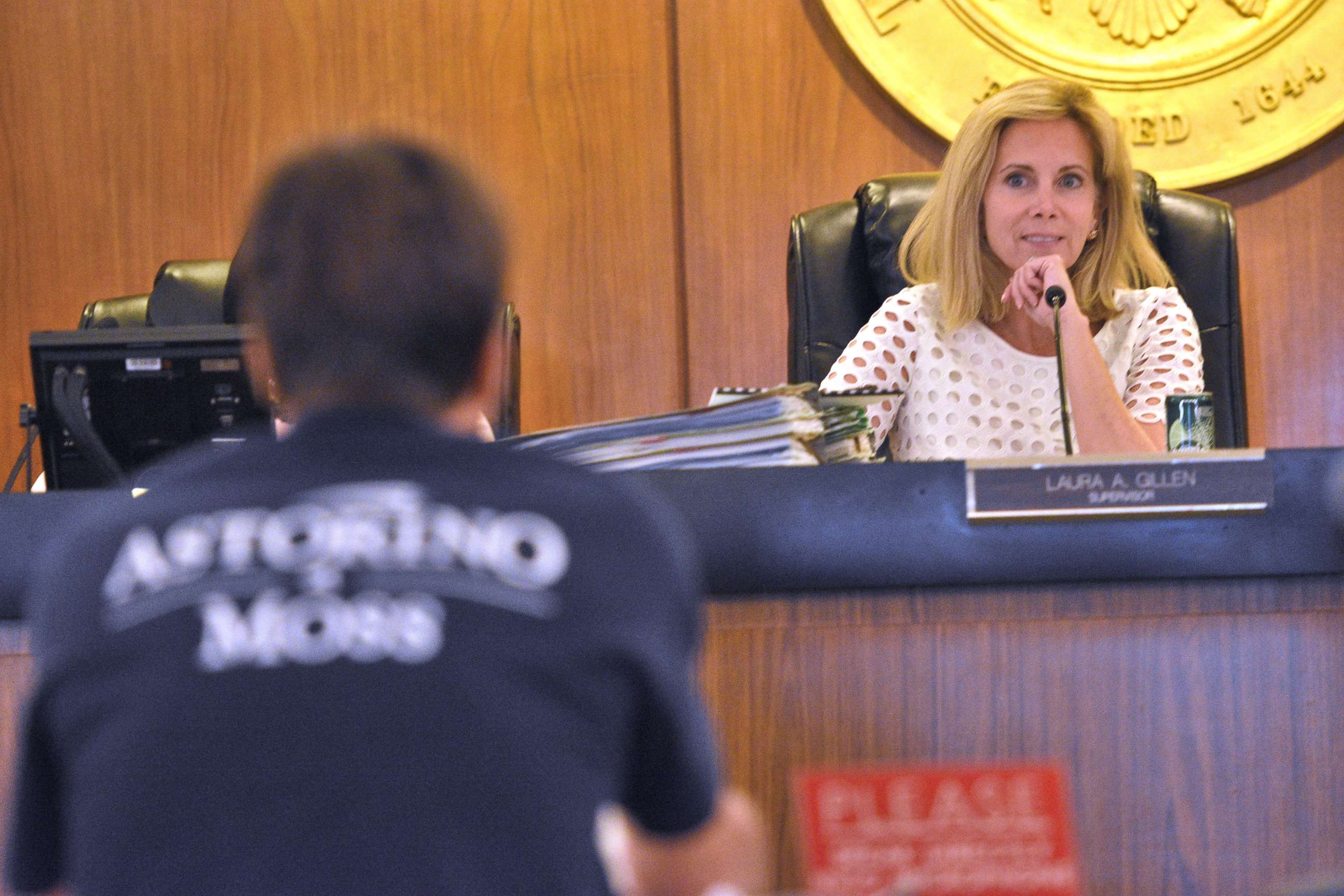
"I'm looking at things for the long-term because I want to make the town better for my children and for everyone's children," she said. "We're looking to update outdated procedures and be more inclusive and respective of people’s rights."
Morgan, a special-education teacher, will be watching the town vote and hopes women watch closely as their voices are heard.
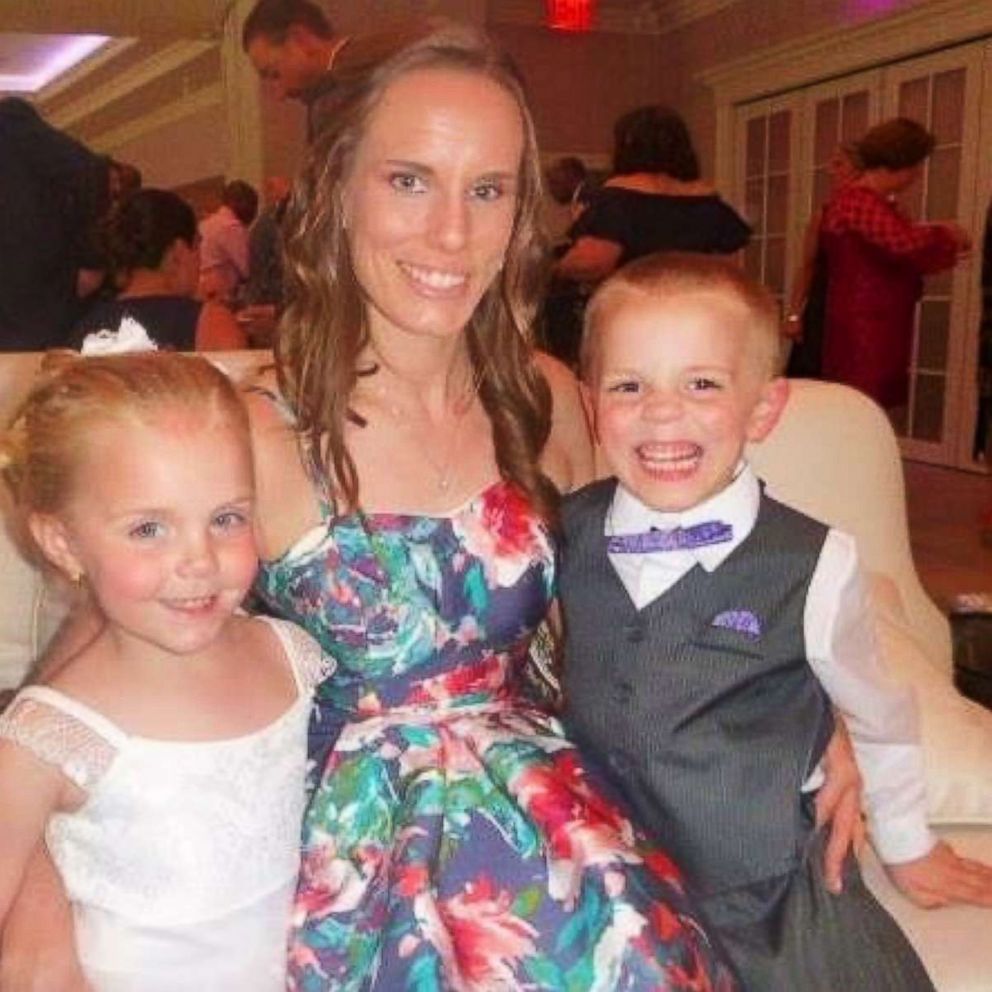
"I think it's great, especially for women to see that women can make a difference," she said.
Moms continue the fight for breastfeeding
The controversy in Hempstead unfolded as mothers around the world continue to try to normalize breastfeeding, which is recommended exclusively for the first six months of a baby's life. August is National Breastfeeding Awareness Month.
"Big Latch On” demonstrations took place around the world in recent days as moms in cities from New York to Seattle, Savannah and Mexico City breastfed en masse to bring attention to the issue.

Breastfeeding in public only became legal in all 50 states earlier this year when legislation was passed in Utah and Idaho.
Even with breastfeeding in public legal nationwide, women still face discrimination.
Two breastfeeding moms were asked to leave a public pool in Minnesota in July after being told they were making other pool-goers uncomfortable. Days later, more than a dozen moms held a "nurse in" at the pool, north of Minneapolis, in support of the moms.
Women are also taking action to not only normalize breastfeeding, but also make the places they breastfeed more comfortable.
Krish Vignarajah, a Maryland gubernatorial candidate, released a campaign ad in March that showed her nursing her nine-month-old daughter, Alana.
A petition started by Lacey Kohlmoos and Samantha Matlin, two working moms from the Philadelphia area, resulted in Amtrak's agreeing to install self-contained mobile lactation pods at Amtrak stations in Washington, D.C., Baltimore, Philadelphia, New York City and Chicago.
Breastfeeding rates are on the rise in the U.S., according to the 2016 Breastfeeding Report Card from the U.S. Centers for Disease Control and Prevention. Around 81 percent of infants born in 2013 were breastfed immediately after birth, and more than half were breastfeeding at six months.
Employers have been required to provide "reasonable break time" and a place, other than a bathroom, for employees to pump breast milk since enactment of the Affordable Care Act in 2010. Nearly 30 states, plus the District of Columbia and Puerto Rico, also have laws related to breastfeeding in the workplace, according to the National Conference of State Legislatures.
Women can find the specific breastfeeding laws in their state by visiting the NCSL's website.

